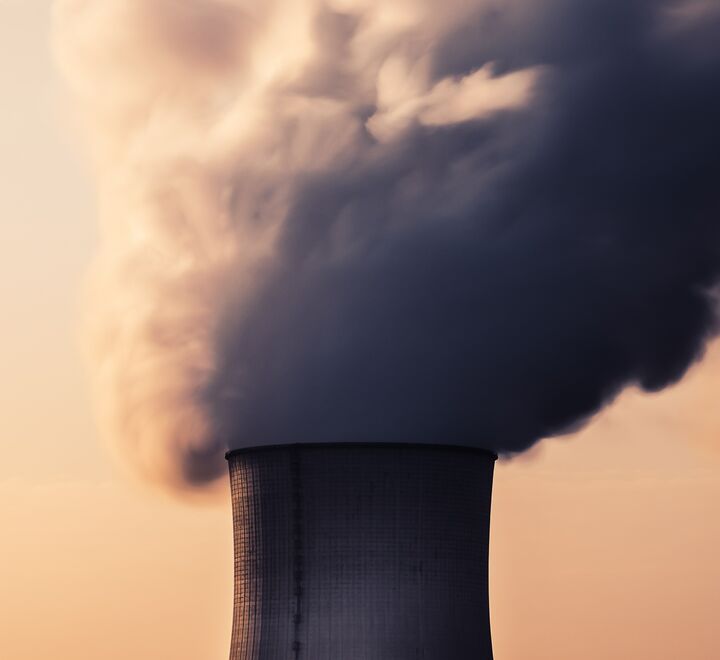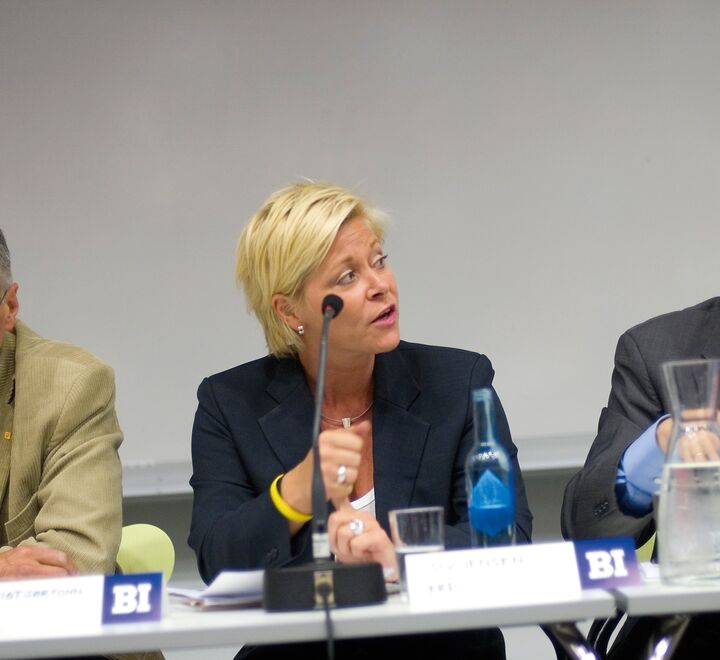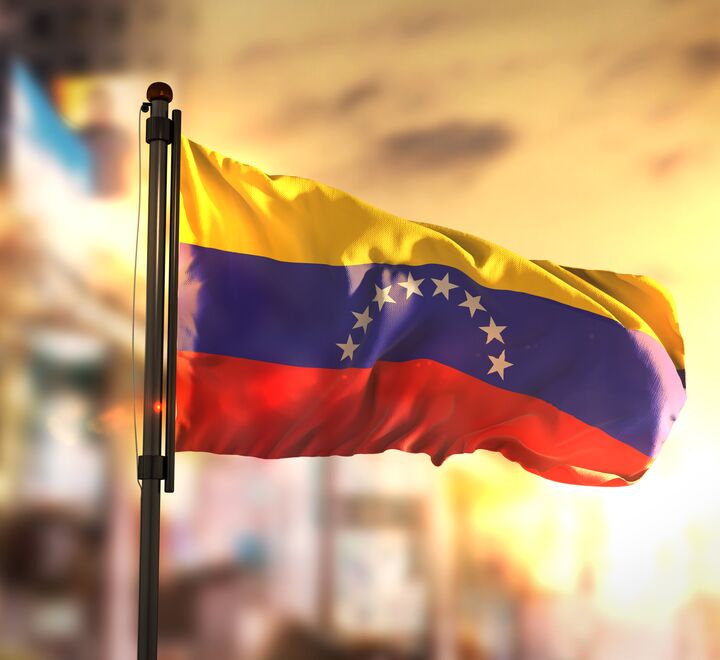Jørgen Juel Andersen
Professor
Deans, Institutt for samfunnsøkonomi
Professor
Deans, Institutt for samfunnsøkonomi

Artikkel Jørgen Juel Andersen, Niels Johannesen, Bob Rijkers (2022)
Do elites capture foreign aid? This paper documents that aid disbursements to highly aid-dependent countries coincide with sharp increases in bank deposits in offshore financial centers known for bank secrecy and private wealth management but not in other financial centers. The estimates are not confounded by contemporaneous shocks—such as civil conflicts, natural disasters, and financial crises—and are robust to instrumenting using predetermined aid commitments. The implied leakage rate is around 7.5% at the sample mean and tends to increase with the ratio of aid to GDP. The findings are consistent with aid capture in the most aid-dependent countries.
Artikkel Jørgen Juel Andersen, Rune Jørgen Sørensen (2022)
Economic theory and evidence suggest that political leaders take advantage of government revenue windfalls – particularly from natural resource exploitation – to enrich themselves. We revisit this hypothesis by combining information on massive local government hydropower and petroleum revenues in Norway with five decades of registry data on individual mayors’ earnings and wealth. We find that, while the resource expansions massively boost local government revenues and spending, there is no evidence that mayors exploit the windfalls to enrich themselves. We attribute our precisely estimated zero-finding to characteristics of the Norwegian institutional and informational environment. First, we show that the revenue windfalls induce citizens to seek political information and raise their rates of electoral participation. Second, in the early sample period when local newspapers were more important, mayors’ wage responses were negatively related to newspaper coverage. In sum, our results suggest that voter information is a key disciplining accountability mechanism, potentially explaining our zero-rent result.
Artikkel Jørgen Juel Andersen, Frode Martin Nordvik, Andrea Tesei (2021)
We reconsider the relationship between oil and conflict, focusing on the location of oil resources. In a panel of 132 countries over the period 1962-2009, we show that oil windfalls escalate conflict in onshore-rich countries, while they de-escalate conflict in offshore-rich countries. We use a model to illustrate how these opposite effects can be explained by a fighting capacity mechanism, whereby the government can use offshore oil income to increase its fighting capacity, while onshore oil may be looted by oppositional groups to finance a rebellion. We provide empirical evidence supporting this interpretation: we find that oil price windfalls increase both the number and strength of active rebel groups in onshore-rich countries, while they strengthen the government in offshore-rich ones.
Artikkel Jørgen Juel Andersen, Tom-Reiel Heggedal (2019)
Political parties commited to grab rents may run for election, and even win, if citizens are uninformed. But, how is the political equilibrium affected if citizens can mitigate this information problem through costly information search? We propose a political equilibrium theory with endogenous information search and turnout. We show that: (i) the political equilibrium generates political uncertainty characterized by a distribution of rent policies; (ii) the expectation of this rent distribution is inversely U-shaped in the information search cost; (iii) turnout is lower and rents are higher the more proportional is the electoral system.
Artikkel Jørgen Juel Andersen, Niels Johannesen, David Dreyer Lassen, Elena Paltseva (2017)
Artikkel Jørgen Juel Andersen, Mads Greaker (2017)
A government is fiscally constrained if it is unable to raise sufficient tax revenue to finance the first-best level of public spending. When involved in emission trading, a fiscally constrained government will potentially seek to close its fiscal gap through emission permit sales. This fiscal incentive therefore generates a fiscal externality in the permit market that is endogenous to the extent of fiscal constrainedness among the participating countries. Our theory explains how, and when, fiscal externalities may be expected to arise. Moreover, we show that in a permit market equilibrium with fiscal externalities, the initial allocation of emission permits between countries will affect: (1) the price of emission permits, (2) the global distribution of abatement effort, and (3) total greenhouse gas mitigation costs. This is contrary to the textbook model of emission permit markets. Our findings are especially relevant for the EU which is about to allow for trading in emission rights between EU member countries for all emissions outside the European Emissions Trading System..
Artikkel Jørgen Juel Andersen, Michael L. Ross (2014)
The claim that oil wealth tends to block democratic transitions has recently been challenged by Haber and Menaldo, who use historical data going back to 1800 and conclude there is no “resource curse.” We revisit their data and models, and show they might be correct for the period before the 1970s, but since about 1980, there has been a pronounced resource curse. We argue that oil wealth only became a hindrance to democratic transitions after the transformative events of the 1970s, which enabled developing country governments to capture the oil rents that were previously siphoned off by foreign-owned firms. We also explain why the Haber–Menaldo study failed to identify this: partly because the authors draw invalid inferences from their data and partly because they assume that the relationship between oil wealth and democracy has not changed for the past 200 years.
Artikkel Jørgen Juel Andersen, Jon H. Fiva, Gisle J. Natvik (2014)
Most theories of voter behavior predict that electoral participation will be higher in elections where more is at stake. We test this prediction by studying how participation is affected by exogenous variation in local governments' financial flexibility to provide pork for their voters.Utilizing simultaneous elections for different offices, we identify a positive effect of election stakes on participation: Higher stakes at the local level increase participation at the local relative to the regional election. Survey evidence indicates that the underlying mechanism relates to citizens' acquisition of information.
Artikkel Jørgen Juel Andersen (2013)
Governments in resource abundant economies face a tradeo¤ between transferring wealth to present generations and saving for future generations. Employing an overlapping generations framework with endogenous growth, this paper analyzes the intergenerational welfare e¤ects of: (1) a wealth transfer policy where the entire wealth is transferred to the generations alive at present; (2) an income transfer policy where the wealth is saved and the permanent income of the wealth is transferred to all present and future generations, forever. Not surprisingly, present generations are unambiguously better o¤ with the wealth transfer policy. Less trivially, however, the wealth transfer policy can be associated with higher wel-fare also for future generations. The intuition for this result is that while a wealth transfer depresses growth only in the periods subsequent to the transfer, income transfers constitute a permanent drag on growth. Perhaps counter to the naïve intuition, the policy of saving the wealth and distributing the permanent income to all present and future generations is less bene cial for the future generations if the real return to saving is high
Artikkel Jørgen Juel Andersen, Silje Aslaksen (2013)
Political economy theories on the “natural resource curse” predict that natural resource wealth is a determining factor for the length of time political leaderships remain in office. Whether resource wealth leads to longer or shorter durations in political office depends on the political incentives created by the natural resources, which in turn depend on the types of institutions and natural resource. Exploiting a sample of more than 600 political leadership durations in up to 152 countries, we find that both institutions and resource types matter for the effect that natural resource wealth has on political survival: (i) wealth derived from natural resources affects political survival in intermediate and autocratic, but not in democratic, polities; and (ii) while oil and non-lootable diamonds are associated with positive effects on the duration in political office, minerals are associated with negative duration effects.
Artikkel Jørgen Juel Andersen (2012)
Existing theory on the form of government suggests that a parliamentary system promotes a larger size of government than does a presidential system. This paper extends the existing theory by allowing for distortionary taxation. A main result is that if taxation is sufficiently distortionary, the parliamentary system may promote a smaller size of government than the presidential system. The proposed mechanism appears consistent with several empirical patterns in the data that cannot be explained by other theories.
Artikkel Jørgen Juel Andersen (2011)
Using a combination of time-series variation in oil prices and cross-section variation in the oil intensity of countries, this paper investigates whether exogenous shifts in the government revenues a¤ect the government expenditures di¤erently depending on the political institutions of the form of government. Comparing the scal policy dynamics in parliamentary and presidential systems, a main nding is that the government expenditures appear more responsive to shifts in the revenues when the form of government is presidential.
Artikkel Jørgen Juel Andersen, Silje Aslaksen (2008)
Utilizing the fact that natural resources are randomly distributed among countries, we investigate how public income shocks have different long run economic effects dependent on constitutional arrangements. We find that (i) the so-called ‘resource curse’ is present in democratic presidential countries—but not in democratic parliamentary countries, (ii) being parliamentary or presidential matters more for the growth effects of natural resources than being democratic or autocratic, and (iii) natural resources are more likely to reduce growth when proportional electoral systems are in place than when the electoral systems are majoritarian. The two first effects appear very robust, the last effect less so.
Kronikk Jørgen Juel Andersen (2018)
Kronikk Jørgen Juel Andersen (2018)
Kronikk Jørgen Juel Andersen (2018)
Kronikk Jørgen Juel Andersen (2018)
Kronikk Jørgen Juel Andersen (2018)
Kronikk Jørgen Juel Andersen (2018)
Kronikk Jørgen Juel Andersen (2018)
Kronikk Jørgen Juel Andersen (2018)
Kronikk Jørgen Juel Andersen (2017)
Kronikk Jørgen Juel Andersen (2017)
Kronikk Jørgen Juel Andersen (2017)
Kronikk Jørgen Juel Andersen (2017)
Kronikk Jørgen Juel Andersen (2017)
Kronikk Jørgen Juel Andersen (2017)
Kronikk Jørgen Juel Andersen (2017)
Kronikk Jørgen Juel Andersen (2016)
Kronikk Jørgen Juel Andersen (2016)
Kronikk Jørgen Juel Andersen (2016)
Kronikk Jørgen Juel Andersen (2016)
Konferanseforedrag Lassi Mikael Ahlvik, Jørgen Juel Andersen, Jonas Hveding Hamang, Torfinn Harding (2025)
Rapport Radek Stefanski, Lassi Mikael Ahlvik, Jørgen Juel Andersen, Torfinn Harding, Alex Trew (2025)
Konferanseforedrag Jørgen Juel Andersen, Jonas Hveding Hamang, Torfinn Harding, Gerhard Toews (2024)
Foredrag Lassi Mikael Ahlvik, Jørgen Juel Andersen, Jonas Hveding Hamang, Torfinn Harding (2024)
Department seminar. Torfinn Harding is a Professor of Economics at the University of Stavanger Business School. He will be presenting the paper
Konferanseforedrag Radek Stefanski, Lassi Mikael Ahlvik, Jørgen Juel Andersen, Torfinn Harding, Alex Trew (2024)
Konferanseforedrag Torfinn Harding, Lassi Mikael Ahlvik, Jørgen Juel Andersen, Jonas Hveding Hamang (2024)
Konferanseforedrag Torfinn Harding, Jonas Hveding Hamang, Lassi Mikael Ahlvik, Jørgen Juel Andersen (2024)
Konferanseforedrag Jørgen Juel Andersen, Rune Jørgen Sørensen (2018)
Konferanseforedrag Jørgen Juel Andersen, Niels Johannesen, Bob Rijkers (2018)
Konferanseforedrag Jørgen Juel Andersen, Frode Martin Nordvik, Andrea Tesei (2016)
Konferanseforedrag Jørgen Juel Andersen, Tom-Reiel Heggedal (2015)
Rapport Jørgen Juel Andersen, Mads Greaker (2014)
The theoretical justification for a greenhouse gas (GHG) cap and trade system is that participants will trade emission permits until their marginal cost of abatement equals the equilibrium price of emission permits. However, for fiscally constrained governments this logic does not apply, as they have a fiscal incentive to let welfare concerns, rather than industrial cost efficiency, guide their abatement policy. Then, global cost efficiency will fail even if just a (small) subset of governments are fiscally constrained. Finally, we argue that any institutional change which breaks the connection between a government's abatement policy and its budget will increase welfare.
Konferanseforedrag Jørgen Juel Andersen, Niels Johannesen, David Dreyer Lassen, Elena Paltseva (2014)
Konferanseforedrag Jørgen Juel Andersen, Niels Johannesen, David Dreyer Lassen, Elena Paltseva (2014)
Konferanseforedrag Jørgen Juel Andersen, Mads Greaker (2013)
Konferanseforedrag Jørgen Juel Andersen, Tom-Reiel Heggedal (2013)
Rapport Jørgen Juel Andersen, Niels Johannesen, David Dreyer Lassen, Elena Paltseva (2013)
Do political institutions limit rent-seeking by politicians? To address this question, we study the transformation of petroleum rents into hidden wealth using unique data on bank deposits in tax havens. We find that petroleum rents are associated with increases in hidden wealth, but only when political institutions are very weak. We also discern an interesting interaction with political risk: events such as elections and domestic conflict are preceded by increases in hidden wealth when political institutions are weak, which is consistent with a view of autocratic rulers as forward-looking rent-seekers whose behavior is constrained by political checks and balances.
Konferanseforedrag Jørgen Juel Andersen, Tom-Reiel Heggedal (2013)
Konferanseforedrag Tom-Reiel Heggedal, Jørgen Juel Andersen (2013)
Foredrag Jørgen Juel Andersen, Niels Johannesen, David Dreyer Lassen, Elena Paltseva (2012)
Konferanseforedrag Jørgen Juel Andersen, Michael L. Ross (2012)
Konferanseforedrag Jørgen Juel Andersen, Niels Johannesen, David Dreyer Lassen, Elena Paltseva (2012)
Konferanseforedrag Silje Aslaksen, Jørgen Juel Andersen (2011)
Konferanseforedrag Jørgen Juel Andersen, Silje Aslaksen (2011)
Konferanseforedrag Jon H. Fiva, Gisle James Natvik, Jørgen Juel Andersen (2011)
Konferanseforedrag Silje Aslaksen, Jørgen Juel Andersen (2011)
Rapport Jørgen Juel Andersen, Jon H. Fiva, Gisle James Natvik (2010)
Rational choice theories of electoral participation stress that an individual's decision to vote depends on her expected net benefit from doing so. If this instrumental motive is relevant, then turnout should be higher in elections where more is at stake. We test this prediction, by studying how turnout is affected by exogenous variation in governments' financial flexibility to provide pork for their voters. By utilizing simultaneous elections for different offices, we identify a positive effect of election stakes on turnout.
Konferanseforedrag Jørgen Juel Andersen (2010)
Konferanseforedrag Jørgen Juel Andersen (2007)
Rapport Silje Aslaksen, Jørgen Juel Andersen (2006)
Recent advances in the political economy literature suggests that constitutional arrangements determine a wide range of economic pol icy outcomes. In particular, it is argued that different forms of government (presidential versus parliamentary) induce more or less 'growth promoting' policies. However, effects on long run growth have proved harder to identify. We exploit the fact that natural resources are randomly distributed to identify differences in the long-term performance of economies with different constitutional forms. Existing theory suggests that the presence of vast natural resources should affect growth differently in countries with different constitutional designs. Empirically we find strong support for this hypothesis - constitutions indeed seem to matter for how natural resource abundance affects long run growth. In fact, the form of government matters more than democratic rule. We also find interaction effects of electoral rules (majority versus proportional voting) and resource abundance on growth, although these effects are less clear-cut and less robust.
Konferanseforedrag Jørgen Juel Andersen (2006)
Konferanseforedrag Jørgen Juel Andersen, Silje Aslaksen (2006)
Konferanseforedrag Jørgen Juel Andersen, Silje Aslaksen (2006)
Konferanseforedrag Silje Aslaksen, Jørgen Juel Andersen (2005)
| År | Akademisk institusjon | Grad |
|---|---|---|
| 2008 | Norwegian University of Science and Technology (NTNU) | Ph.D. |
| 2004 | Norwegian University of Science and Technology | Master Cand. Polit. |
| 2002 | Norwegian University of Science and Technology | Bachelor |
| År | Arbeidsgiver | Tittel |
|---|---|---|
| 2022 - Present | BI Norwegian Business School | Professor |
| 2012 - 2022 | BI Norwegian Business School | Associate Professor |
| 2008 - 2012 | BI Norwegian School of Management | Assistant Professor |

BI Business Review
Kriserammede bedrifter trenger å omstille seg, og omstilling og innovasjon skjer ikke uten mennesker. Men nettopp bedriftene med størst omstillingsbehov legges i dvale med permitteringspolitikken.

BI Business Review
Vet vi om miljø- og bistandstiltak virker? Hvordan kan vi finne det ut?

BI Business Review
Skal politikernes beslutninger representere folkeviljen, må personlige fordeler av politiske verv gjøres minst mulig. Det gjelder også gråsonefordelene.

BI Business Review
Hva betyr måten staten organiserer seg på for økonomi? Land med gode institusjoner klarer seg bedre, både økonomisk og politisk.

BI Business Review
Har oljerikdommen ødelagt Venezuela? Hvorfor har det gått bra for Norge?

BI Business Review
Det er mulig å drive effektiv bistand uten at korrupsjonen øker. Giverens holdninger avgjør.

BI Business Review
Hvem vinner og hvem taper på at EUs energibyrå Acer får økt makt over energimarkedet? Jørgen Juel Andersen svarer deg.

BI Business Review
Alle er for å skape verdier. Kanskje er det derfor ordet verdiskaping brukes så mye. Men, hva er det egentlig?

BI Business Review
Er Bitcoin penger, og hva bestemmer prisen? Førsteamanuensis Jørgen Juel Andersen ved BI svarer.

BI Business Review
Hvem unndrar mest skatt? Lekkasjer fra skatteparadis gir svar.

BI Business Review
Alle skatter har en kostnad. Er eiendomsskatt bedre enn andre skatter? Jørgen Juel Andersen svarer.

BI Business Review
Bør Norges Bank fortsatt styre etter et inflasjonsmål? Førsteamanuensis Jørgen Juel Andersen svarer.